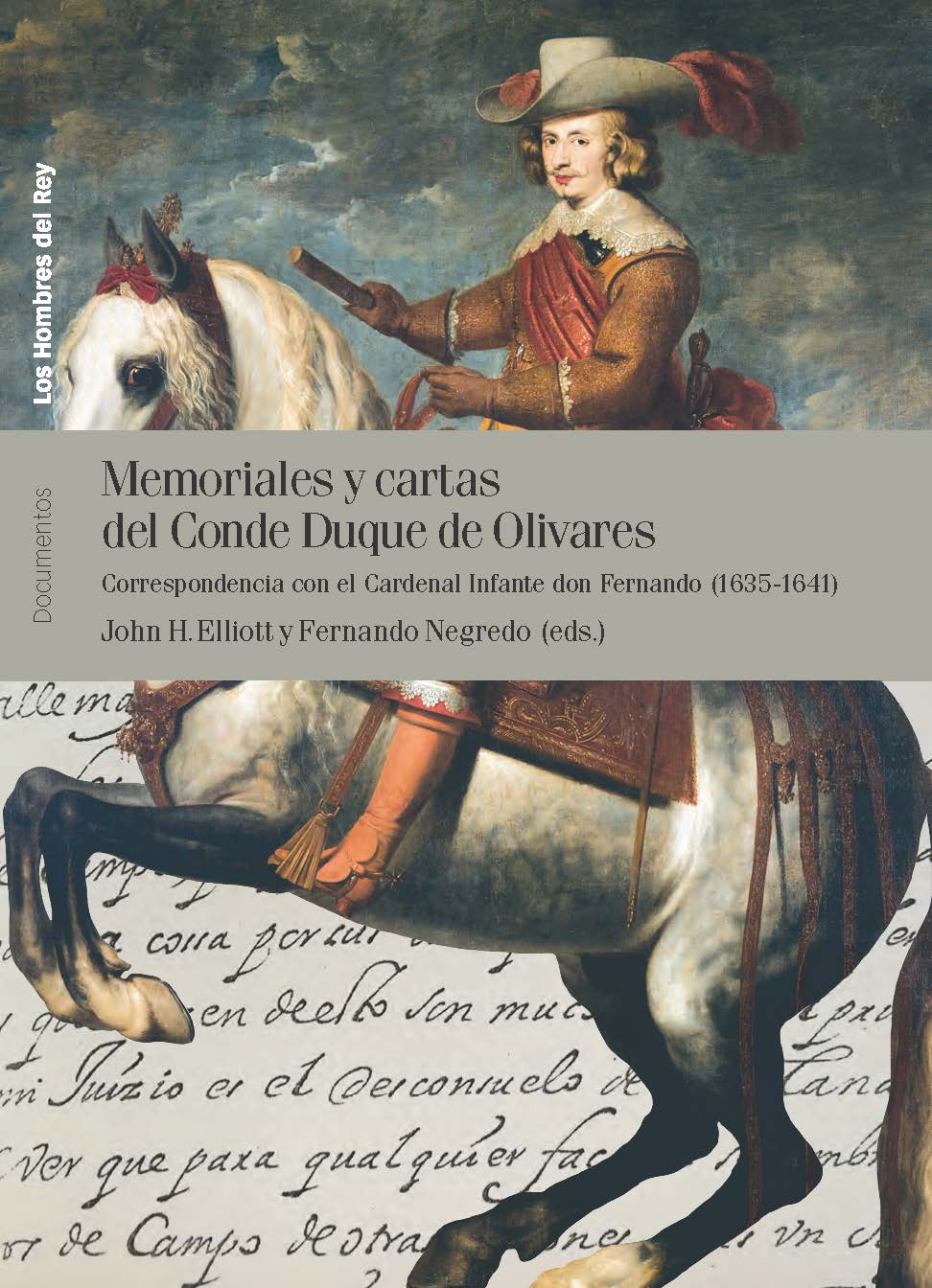Author
Sir John H. Elliott and Fernando Negredo (eds.)
Characteristics
984 pages; flapped paperback; 17 x 22 cm
Publication
Spanish; jointly published with Marcial Pons; 2021
ISBN
978-84-15963-13-4
Price
€40,39
The international dimension of the Spanish Monarchy is key to understanding the complexity of the governance tasks faced by the Count-Duke of Olivares. This volume therefore sets out to complete the picture of his ministry provided by the first part of Memoriales y Cartas, which focuses solely on aspects of domestic policy. Through a detailed analysis of the letters exchanged by the valido and Philip IV’s brother Don Fernando de Austria, it offers a comprehensive survey not only of the man himself, Don Gaspar de Guzmán, and his relationship with the governor general of the Netherlands but also of developments in European politics at key moments in the Thirty Years’ War (1635−1641).
Professors John H. Elliott and Fernando Negredo del Cerro (with the collaboration of Alicia Esteban Estríngana and Manuel Amador González Fuertes) have compiled this extremely interesting correspondence – hitherto unpublished – accompanied by broad-ranging introductory essays in what is set to become a reference work in the study of Spain’s overseas influence in the seventeenth century.
Sir John H. Elliott (1930- 2022) was Regius Professor of Modern History at the University of Oxford. A historian of Spain, Europe, and the Americas in the Modern Age, he published many works including Imperial Spain (1963), The Revolt of the Catalans (1963), The Count-Duke of Olivares (1986), Empires of the Atlantic World (2006), and, more recently, History in the Making (2012). He received various prizes, among them the Prince of Asturias award for Social Sciences and the Balzan prize for History.
Fernando Negredo, a specialist in the reign of Philip IV, has lectured in Modern History at the Carlos III and Complutense universities in Madrid. He has published more than fifty studies related to this period in different languages, such as Los predicadores de Felipe IV (2006) and De copistas y censuras. Una versión íntegra del memorial de 1637 del Conde Duque de Olivares (2009). In 2013 he collaborated with John H. Elliott on the new edition of the first volume of the Memoriales y Cartas del Conde Duque de Olivares.
Alicia Esteban Estríngana lectures in Modern History at the Universidad de Alcalá. She is the author of Madrid y Bruselas. Relaciones de gobierno en la etapa postarchiducal (1621−1634) (2005) and has recently published ‘¿Renunciar a Flandes? La disyuntiva de separar o conservar los Países Bajos durante la primera mitad del reinado de Felipe II, 1555/6-1579’ (2018); ‘Dar ley a los otros y emanciparse de ella. Balance de hegemonía en las dos guerras de Flandes, 1635-1646’ (2019); and ‘Perderse en Flandes. Opciones y desafíos de la Monarquía de Felipe IV en tres años decisivos, 1621−1623’ (2020).
Manuel Amador González Fuertes, who holds a PhD in History from the Universidad Complutense in Madrid, teaches at a secondary school. His interest in the institutional history of Bourbon Spain has given rise to publications such as La organización institucional de la Cámara de Castilla en la época borbónica (1700−1834) (2002) and an edition of José Joaquín Colón de Larreátegui’s España vindicada, (2011). He has carried out transcription work for a variety of projects, including the inventories of the imperial family of Charles V (2010) and the edition of Sancho Busto de Villegas’s Nobiliario (2014).

